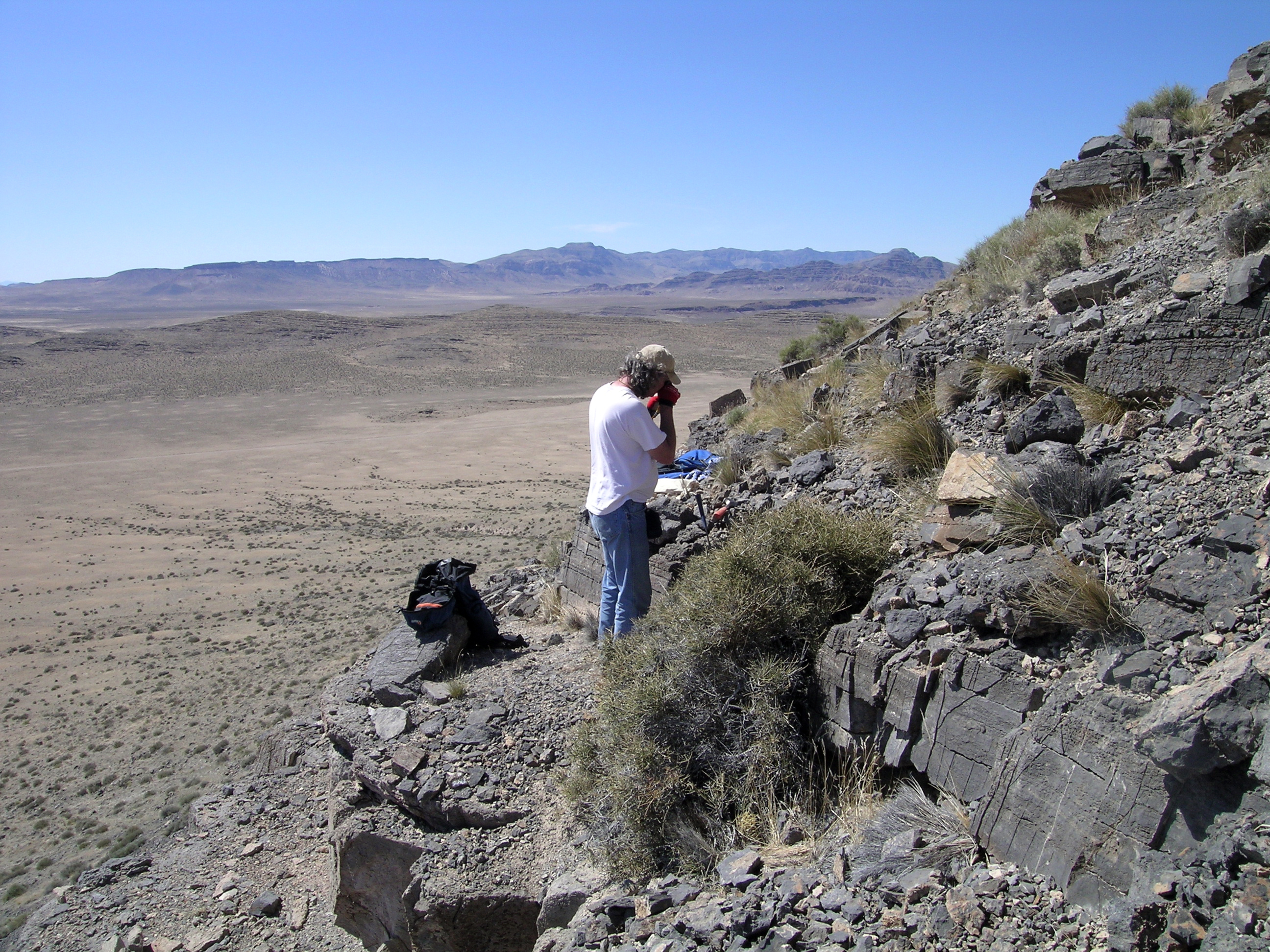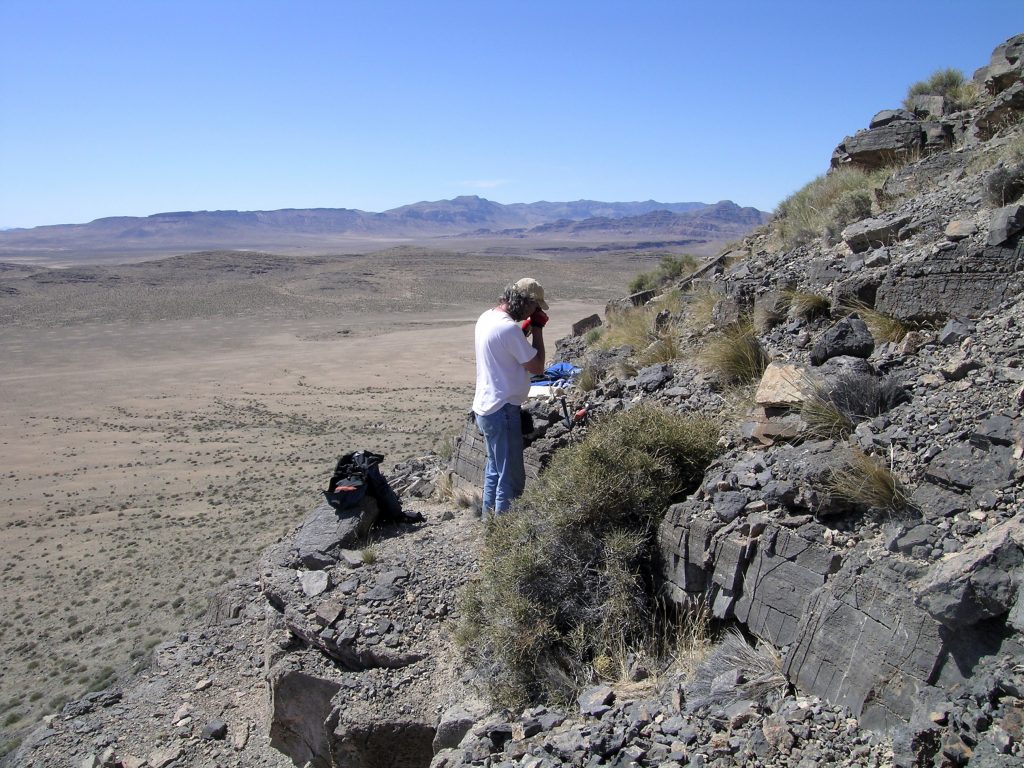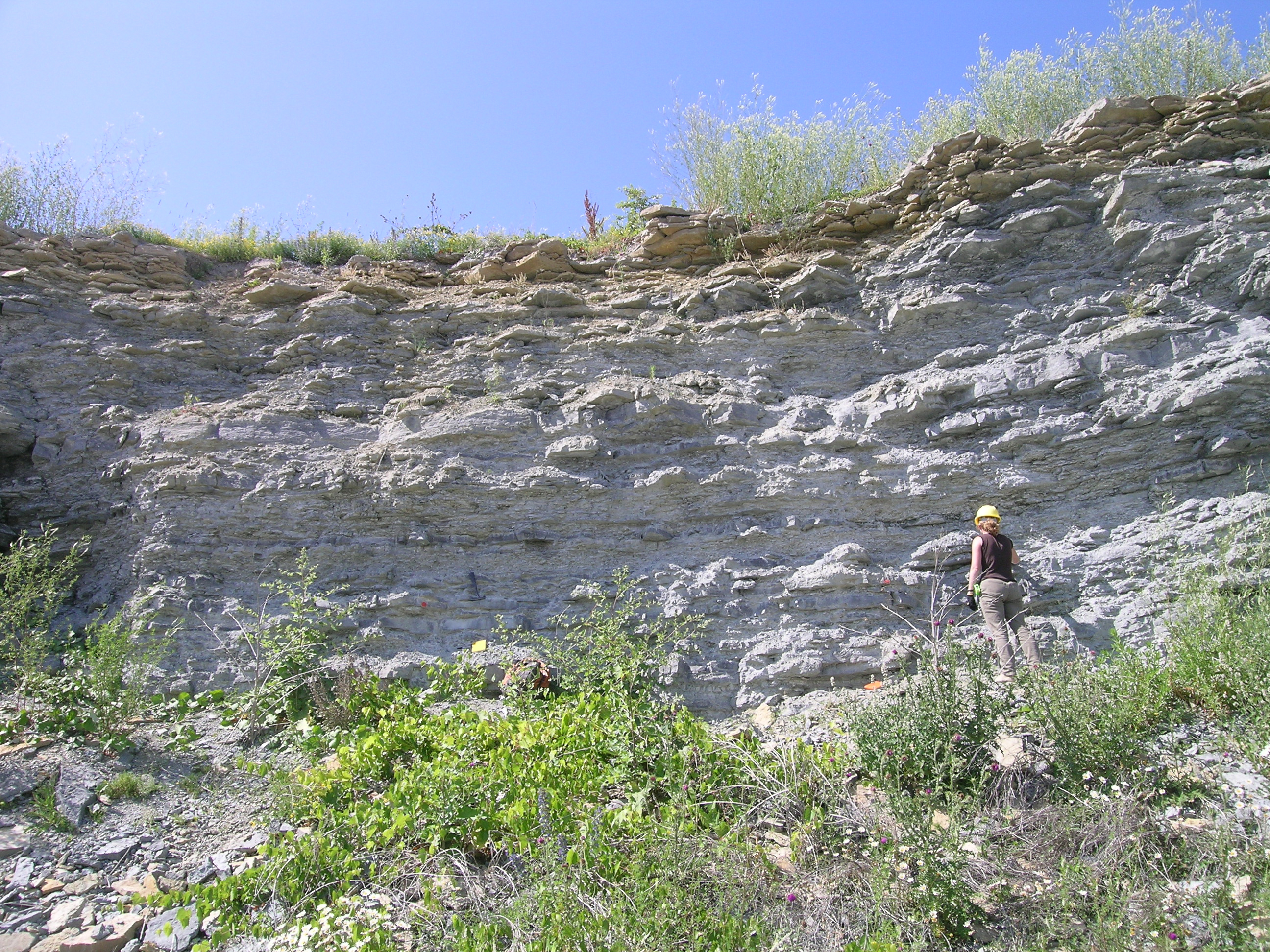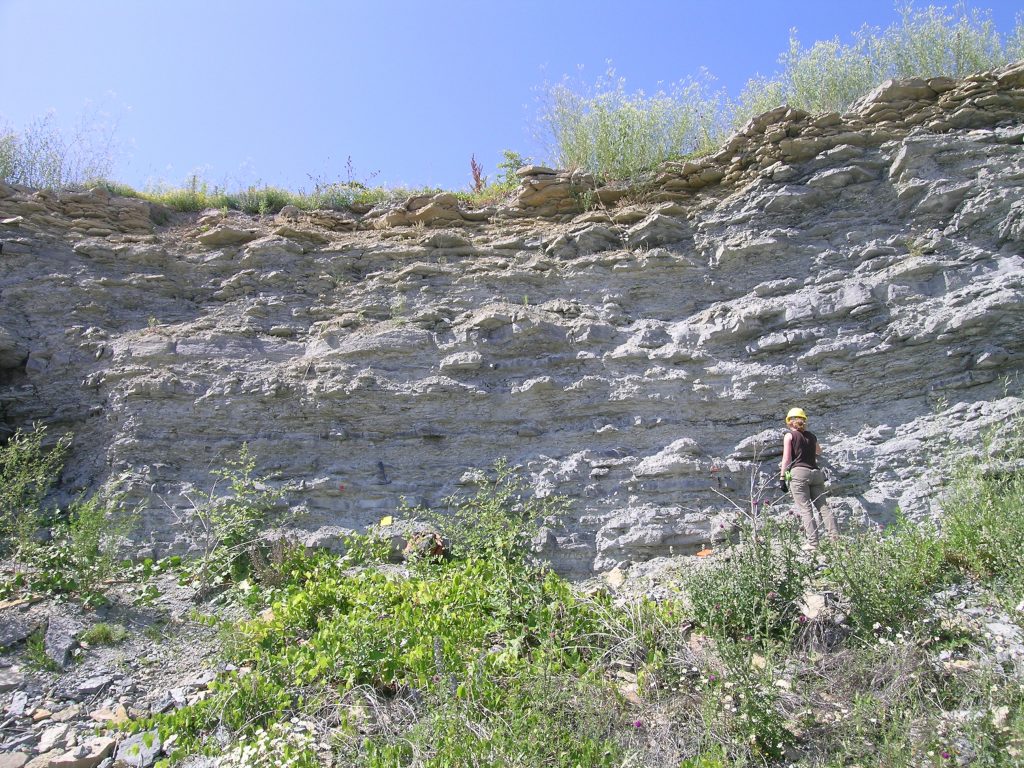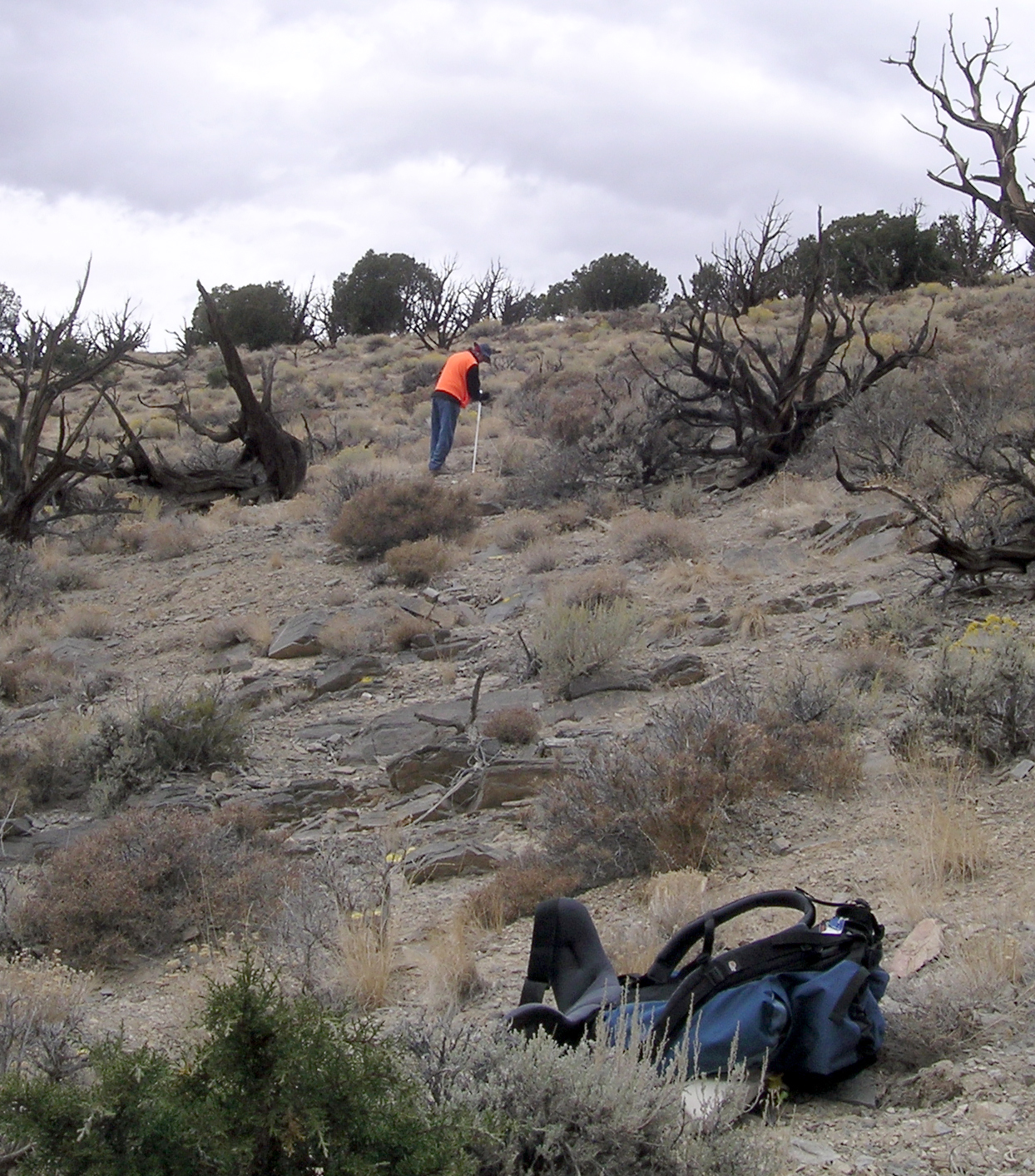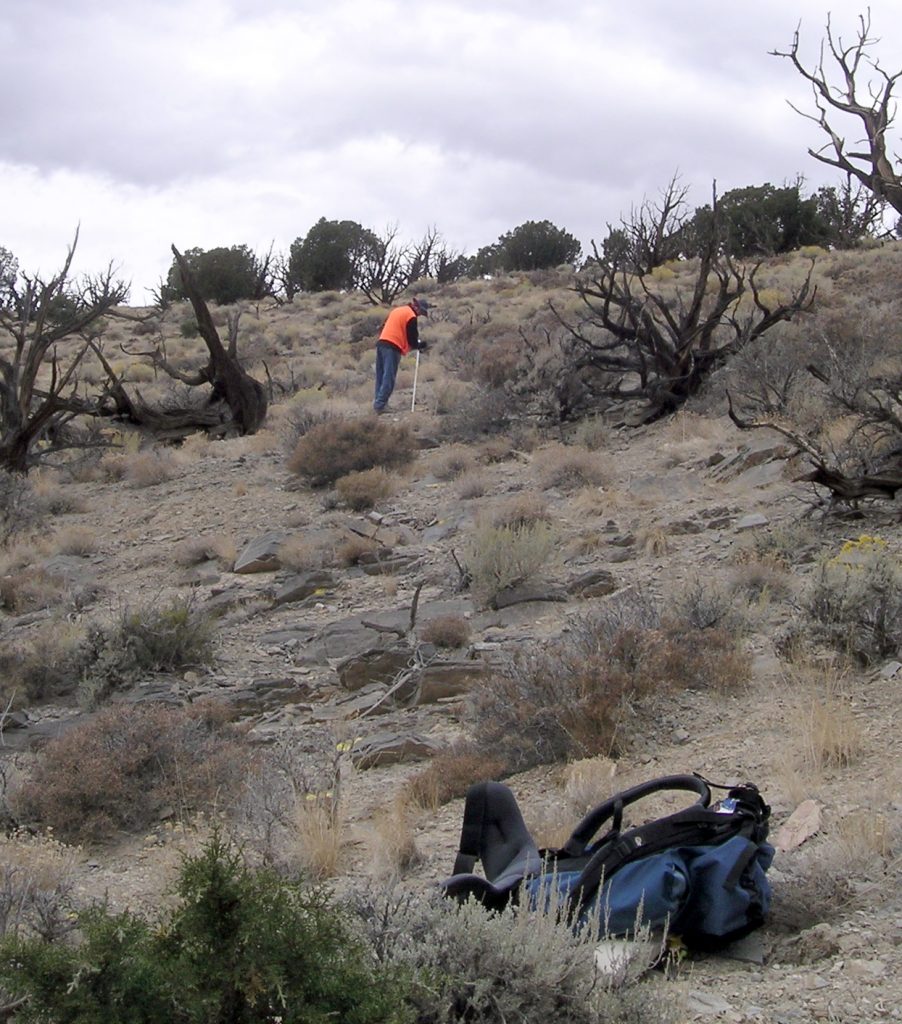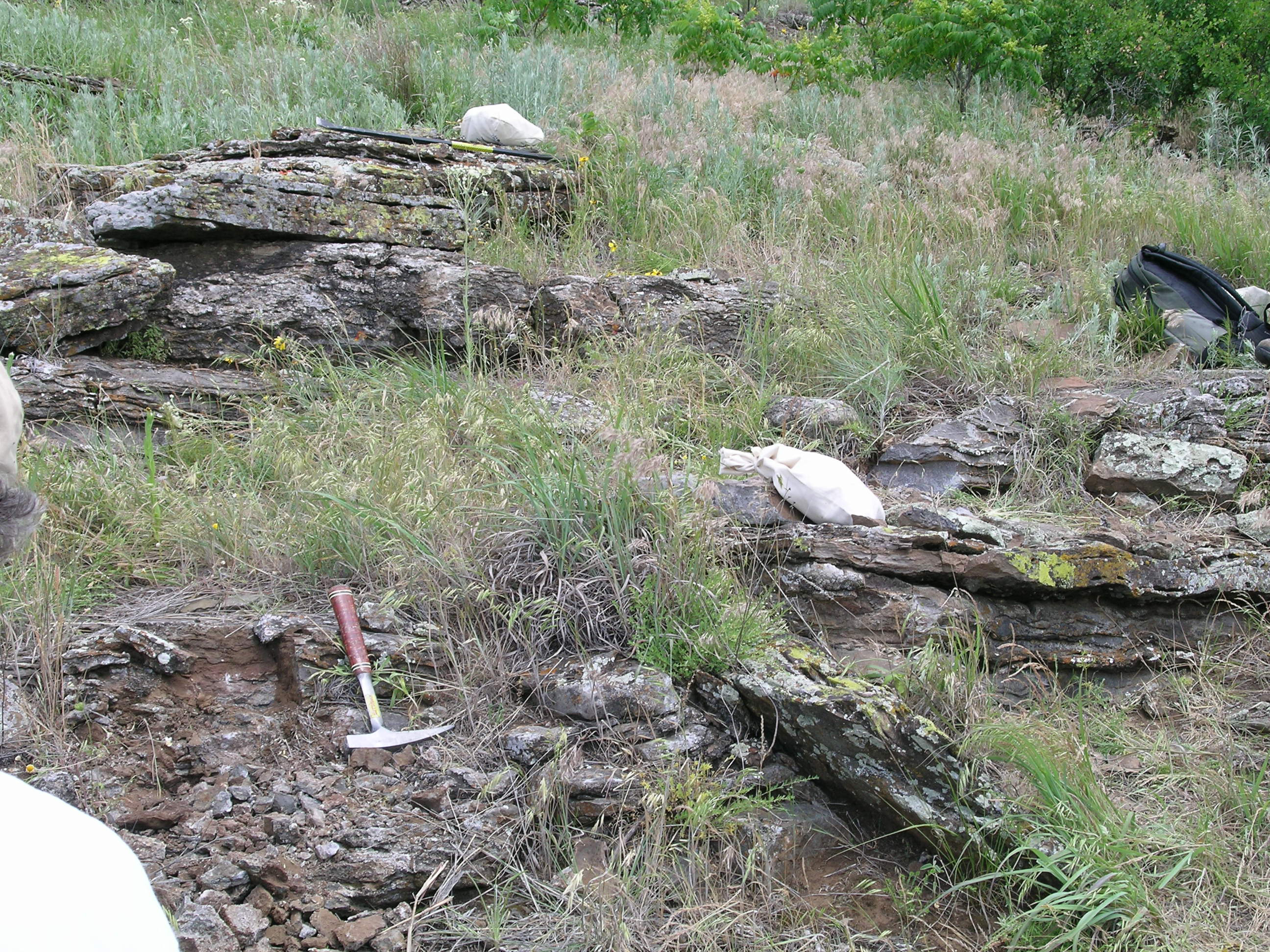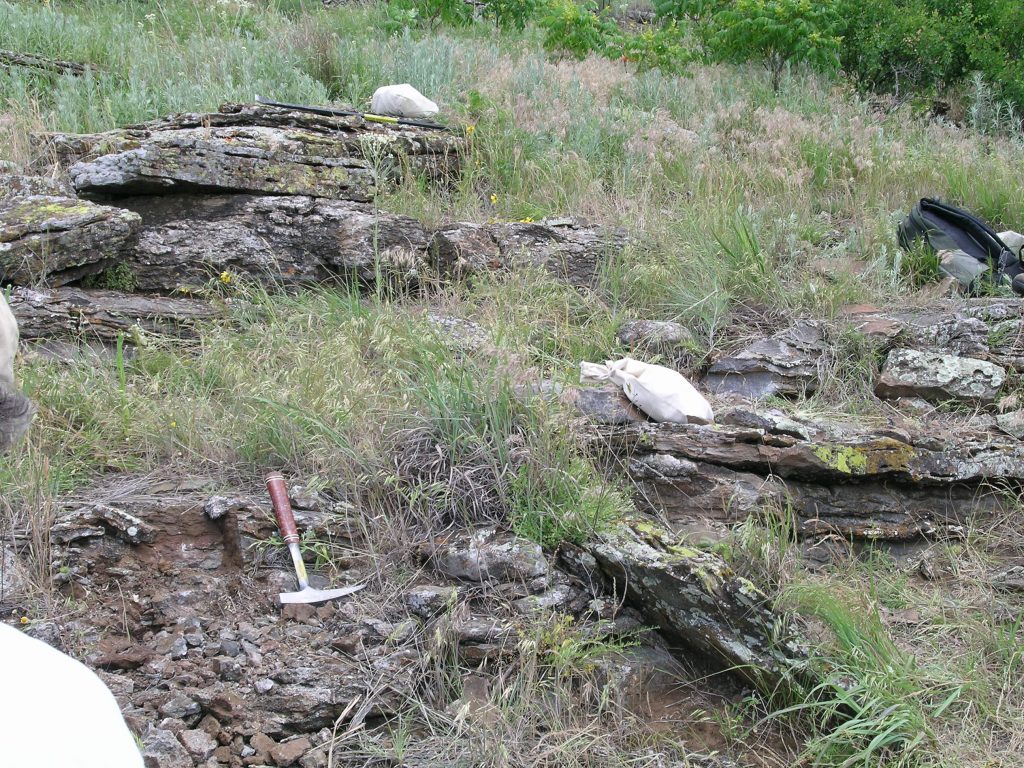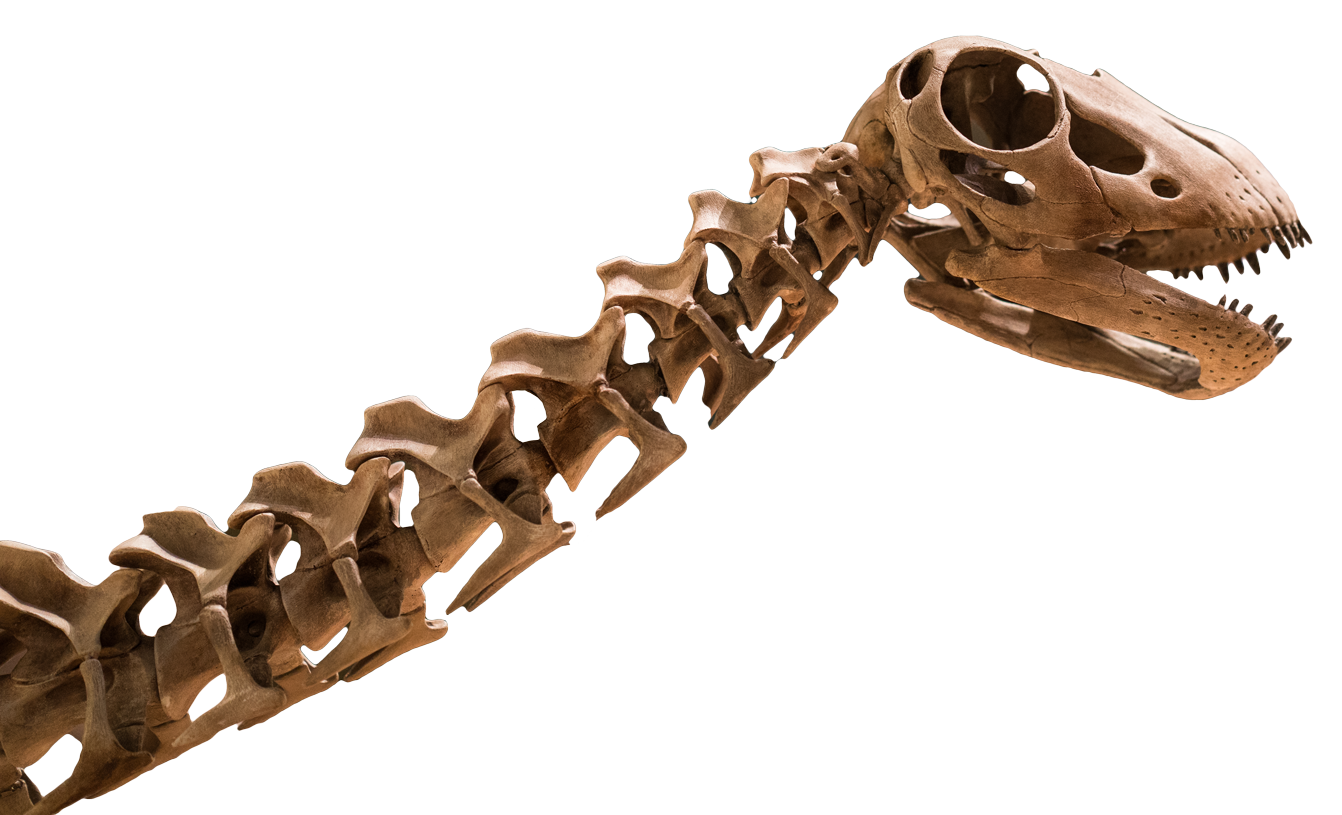Paleontologists study the record of life on Earth left as fossils. More than 99 percent of all species that have ever lived are extinct, so paleontologists will not run out of work any time soon. Paleontological research includes working out the relationships between extinct animals and plants and their living relatives. We reconstruct early communities and their environments and try to understand the changes that have led to those of the present day. We study major extinction events of the past in the hope of applying our conclusions to extinction in the modern world as global climates and environments change.
Field work
Most paleontologists spend a lot of time in the field to collect the fossils that they study. Field work can be done anywhere from a remote mountaintop to a local quarry.
At every site, the rock succession is surveyed so that the position of each fossil collection (white bags) can be accurately determined. The rocks are also studied to provide information on the environments that the fossils once lived in. Almost every research project in paleontology starts with basic information about which animals and plants lived when and where.
Where do paleontologists work?
Most paleontologists work at universities and museums. Some may work for federal or state governments, or in private industry. University paleontologists mostly teach and do research. Invertebrate paleontologists are usually in geology departments. Vertebrate paleontologists and paleobotanists are more often members of biology departments. Duties of paleontologists employed by museums include research, curation of collections, exhibit design and public education. Some museums, like the Sam Noble Museum, are parts of universities and curators also teach at the university level.
How do I become a paleontologist?
Paleontology combines biology and geology, and paleontologists need a broad scientific training. In high school, you’ll need to take biology, chemistry, physics and math. When you move onto college, there are two possible pathways. Invertebrate paleontologists usually take a B.S. in geology with a minor in zoology. Vertebrate paleontologists commonly take the opposite route, a B.S. in zoology with a minor in geology, although some enter the field through geology. Paleobotanists usually take a B.S. in biology or botany, with a minor in Geology. Whatever path you take, your undergraduate degree will be only the first stop in your university education. Almost all jobs in paleontology require advanced, graduate degrees and most paleontologists complete a Ph.D. It’s a long road, but we think that paleontologists have one of the best jobs ever. For most of us, it is a job that we’ve wanted since we were kids. Study hard, and you can get there too!


